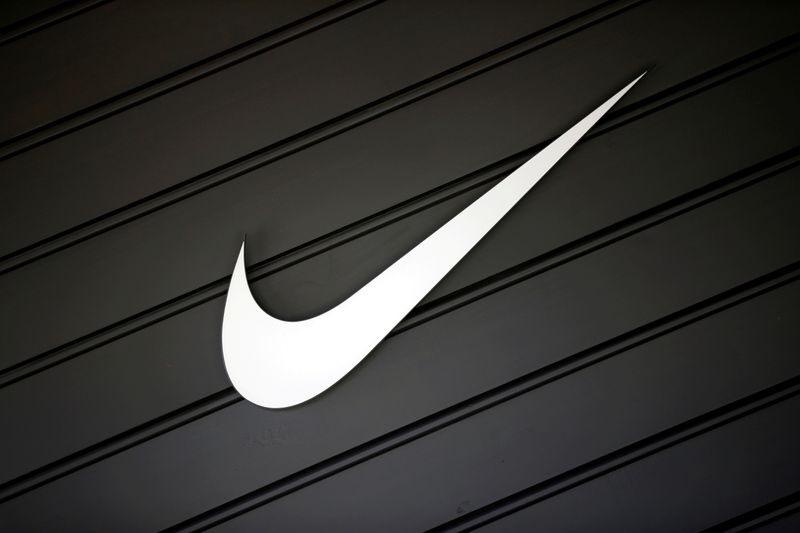By Nivedita Balu and Richa Naidu
(Reuters) -Nike Inc on Thursday forecast fiscal full-year sales ahead of Wall Street estimates, betting on its online business, higher demand as lockdowns ease, and its tried-and-tested strategy of limiting stock for popular products.
The sneaker maker's shares rose nearly 13% after the bell as the company also posted better-than-expected quarterly earnings and revenue.
After staying at home for more than a year and limiting themselves to leisure-wear and comfortable pajamas, consumers are back to buying sneakers for running and hiking as they return to their routines, thanks to rapid vaccinations.
There were definite reasons for optimism and confidence, like the return to sport, Chief Financial Officer Matthew Friend said on an earnings call, adding that Nike (NYSE:NKE) has already begun to see an acceleration in its sport performance business.
Beaverton, Oregon-based Nike said fiscal 2022 revenue is estimated to grow by low double-digits and surpass $50 billion. Analysts had expected revenue of $48.46 billion for fiscal 2022, according to Refinitiv.
First-half growth is expected to be slightly higher than second half growth, Friend said.
In Nike's biggest market, North America, fourth-quarter revenue more than doubled to $5.38 billion and beat the average analysts' estimate of $4.31 billion.
Total gross margin rose 8.5 percentage points to 45.8% versus last year, boosted in part by the company's direct to consumer business and fewer charges related to factory cancellations. Analysts expected gross margin of 43.96%, according to Refinitiv.
In China, a fast-growing market for the company, revenue of $1.93 billion missed expectations of $2.22 billion.
Nike and several other apparel companies like Adidas (OTC:ADDYY) and H&M were attacked on Chinese social media in March after internet users found statements the companies had made on the use of forced labor in Xinjiang.
Net income came in at $1.51 billion, or 93 cents per share, for the quarter ended May 31, compared with a loss of $790 million, or 51 cents per share, a year earlier.
Total revenue nearly doubled to $12.34 billion from a year ago, when the pandemic was at its peak. Analysts were expecting revenue of $11.01 billion and earnings of 51 cents per share, according to IBES data from Refinitiv.
